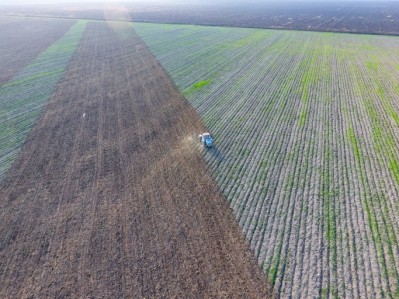Danish ‘foodshakers’ advise government on ingredients policy

The recommendations, titled ‘Foodshakers’ – which refers to all involved in transforming raw materials into ingredients – is the result of a collaboration between Denmark’s universities and industry.
According to Bjarne Larsen, chairman of the advisory board for the ingredients industry, the recommendations aim to help combat global issues surrounding malnutrition and food waste, as well as to raise the profile of Denmark’s ingredients sector.
“Every single day, we all benefit from ingredients such as yeast in bread and enzymes for the production of cheese, but as consumers, we do not give it much thought – we only see the final product: the finished food or feed,” said Larsen.
“However, the Danish ingredients industry is part of the entire food chain from farm to fork and from sea to table, and it is worth a focus,” he added.
“The industry, which covers both feed and food ingredients, has an annual turnover of approx. DKK 40 billion and ensures around 10,000 jobs in Denmark.” – Bjarne Larsen, chairman of the advisory board for the ingredients industry
According to Jakob Ellemann-Jensen, the Danish minister for environment and food, “the ingredients industry has some of the solutions to ensure a sustainable and healthy feed and food production – and consumption”.
“The industry can contribute significantly to the efforts for fulfilling many of the UN Global Goals for 2030. For example, ingredients can contribute to extending the shelf-life of foods and thereby reduce food waste,” he told FoodNavigator.
The Danish ingredient industry is looking at ways to tackle these challenges, including attracting talent, developing new raw material sources, and through investment and partnerships, he continued.
The Foodshaker recommendations focus on sustainability, public health, quality, and recognition of Denmark’s ingredients industry as a ‘national priority area’:
Sustainability: Increasing side streams from existing food resources
Increased use of raw materials and side streams – where by-products are re-purposed for different uses – can add value and reduce waste across the food chain.
According to the recommendations, the Danish ingredients industry has many of the skills and technologies required, such as fermentation and purification processes, to increase side streams from food production, and turn Denmark into “the spearhead of a European circular bioeconomy effort”.
By-products and raw materials not currently authorised for consumption, but that “do not constitute a documented risk in relation to food safety” should be considered, along with new protein sources, such as grass, insects, deep sea fish, seaweed and algae, wrote the board.
To investigate potential side streams from existing and well-known food resources, the group recommends the government establish a task force, made up of authorities, the ingredients industry and research institutions.
In addition, the advisors hope the government can help make it cheaper and less time consuming to develop and use novel ingredients. As it stands, under EU novel food regulations, it can cost companies up to €1-2m to produce sufficient documentation, and take between three and five years to obtain approval.
“The expense of developing ingredients from side streams is prohibitive for many manufacturers,” said the board.
Preventing disease through nutrition
The ingredients industry plays an important role in producing foods with lower salt, fat, and sugar content. Industry can also be instrumental in increasing food’s nutritional value.
As diet has strong links with disease prevention, including cardiovascular diseases, type 2 diabetes, and cancer, the board suggests a “multi-sided effort” is required from the government, covering research, public awareness and nutrition campaigns.
The ingredients industry can also help to remedy problems of malnutrition in the future, said the board, but this would require “backing from the government to create a coordinated effort towards the same goal across health authorities, feed and food industries, and society.”
For the time being, advisors recommend that government and industry work together to identify and implement solutions to key health challenges: “Denmark must invest in the development of healthy feed and foods with focus on natural ingredients in a bio-circular perspective.
“This perspective can contribute to maintaining Denmark’s world leading position within, among others, microbiome research and improve the understanding of the interplay between nutrient absorption and effect under the influence of pre- and probiotics.”
Quality and trade
Denmark’s ingredients industry, which exports more than half of its production, depends on free trade agreements and “a sensible interplay” between national rules and international legislation, said the board.
The high quality of Danish export certificates are therefore integral to the industry, “since it ensures a trust-based access to the export markets,” added the representatives, who pushed for “continued prioritisation” of a good certificate system of high quality.
Additional government resources put towards harmonising the interpretation of legislation both within the EU and within Denmark, was also recommended.
The ingredients industry: a national priority area
As Denmark’s ingredient industry sells within the business-to-business market, and is consequently not as well known within traditional consumer sectors, more must be done to increase political interest and external financing, and to attract talent, argued the advisors.
The Foodshaker document recommends that government and industry collaborate to develop higher education options for students within Denmark and abroad, and more generally, that the government support and recognise the sector as “a national priority area...an essential contributor in the production of healthy, safe, sustainable foods…”

























